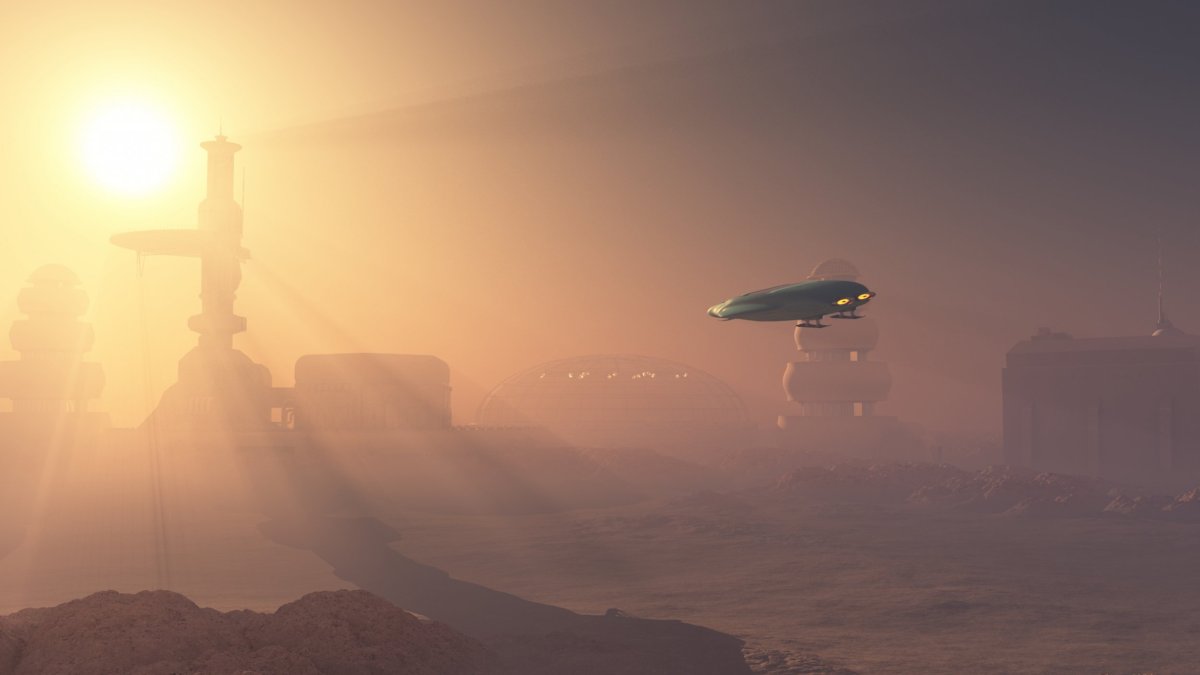Plans for the exploration and even colonization of other planets are very much in the air, and getting to Mars in particular has become a billionaire's hobby lately. Elon Musk would like to establish a human colony on Mars in a matter of decades. (For the foreseeable future—a century, I would venture—Mars will be the only real possibility.) But planetary colonies may be a bad idea, even a disastrous idea. So, it is important to see the arguments against them, as well as their appeal. I begin with a reason that is sometimes made central to proposals for colonies—the idea that we should achieve them as soon as it is feasible.
It is a call for escape from imminent danger. The idea is that nuclear war, ecological catastrophe, or the rise of artificially intelligent robots, will wipe out humans on Earth. But a colony far away might survive, so that the species continues. Stephen Hawking is among those who have argued, or usually just pronounced, for versions of this (and if you want scientific authority, it is hard to do better). But the idea has serious flaws. It is hard to think of even a post-apocalyptic Earth that is less hospitable to any terrestrial life than Mars, let alone elsewhere in the solar system, so the challenges are enormous. But let us ignore that. Suppose that a colony had a reasonable chance of surviving, would the argument from danger justify founding it soon? I think not.

One danger is nuclear and biological war: One nation or ethnic group fears or hates another enough to unleash bombs or viruses. In a bad scenario they succeed. Millions die, and their territory becomes uninhabitable. In the worst scenario, the other side retaliates or the affliction spreads and eventually everyone is dead. But people survive on Mars. Which people? They will include members of one group or their opponents, so if the aim really is to wipe out this group it will be directed at the colonists as well. They are hated, and they are capable of retaliation. Bomb-bearing rockets are much simpler to make than people-bearing rockets. And someone crazy enough to push the button would be crazy enough to direct them at the hated enemy wherever they are found. So, the colony would not be safe. At any rate, it will not be not safe enough that founding it is a better bet than making war less likely on Earth. Worse, any nation party to founding a colony will arouse suspicion in its enemies that it is scheming to start and survive a war. And this makes war more rather than less likely.
Another danger is the rise of smart robots. But again, there is no escape in space. Space travel and running a colony use as much computation as they can get. This was true of the moon landings and it is even truer now. Human beings have an essential role in plans and design, but on the trip itself they are mostly just going along for the ride. So, imagine, just for the sake of argument, that hyper-calculating artificial intelligences are in a position to threaten human civilization. The extension of that civilization on another planet relies even more on those very powers, which will have to be networked to earthly computation. If mere humans can hack into machinery in targeted countries to disrupt them, then these super-capable but malevolent AIs will have no problem. Whatever their "motives," these will be the same elsewhere as on earth, and space is less of an obstacle to the flow of (mis)information and commands than to the flow of people and physical objects. No safety there.
The third danger is ecological. We are ruining the climate and polluting the oceans. We could develop technology that mitigated or even reversed the dangers. It would be easier than developing technology for surviving on Mars, where we must grow food and create oxygen in a very cold and dark environment without much protection from radiation and a limited supply of water. Moreover, getting enough people to Mars to make a colony that could survive without help from home, self-sufficient technologically and with enough genetic diversity that our already rather uniform species would have a future, would involve a lot of rockets. Musk talks in terms of 10,000 flights, although some plans require more. And this would be just to get things started. We just do not know what the impact on the earth and its atmosphere of the launches and the prior manufacturing would be. It would not be positive, at any rate. And industrial power and scientific brains would be diverted away from the needs of earth to the well-being of the colony. It is not what we need; you would only think that we could afford it if you were blind to how desperate things really are. So again, the colony solution is likely to make the earthly situation even more dire.

These are problems for human colonies as refugees on any planet. What about colonies for other purposes, from exploiting resources to the destiny of humanity? There are so many possible purposes, and the means and destinations are so varied, that there is not going to be a single simple answer. But some of the dangers are common to many of the plans. There is the possibility of triggering war or ecological catastrophe on earth, already mentioned. There is the folly of sending vulnerable humans to do jobs that robots can do more safely and cheaply. There is the diversion of resources, effort, and commitment from the pressing needs of our planet. To appreciate many of these, one has to take fully on board quite how inhospitable to anything like human life most planets are. Cold, radiation, lack of oxygen and lack of the food-providing soil that has built up on earth over billions of years: all of these are a problem anywhere in the solar system except for our one place. And there is the extreme neediness of human beings, who have to keep their body temperature constant and their brains constantly operating, and who flourish only when they maintain complex delicate social systems. This is a matter of biology rather than of physics; we have evolved to fit our own planet and we require enormous resources to survive anywhere else.
Of course, there are replies to consider. Of course, the full range of possibilities cannot be discussed in a few sentences. Of course, a flash of rhetoric is no substitute for a real analysis. That is the main point. These are complex and many-sided issues that need to be thought out carefully. Separating the realistic from the science fictional, opportunities from nightmares, is not an easy job. It asks for skills that are spread among people and disciplines: scientific sophistication, technological savvy, an eye for future developments, both scientific and social. And, often neglected, a sensitivity to issues about the long-term fate of the human species. Moreover, the stakes are high, so we need a component of what the psychologist Gary Klein calls "premortem" thinking, assuming for the sake of argument that a plan will lead to disaster and conceiving of the most likely route that disaster will take. This is to ask a lot. (I have contributed to it in a recent book.) But we do not have to be rushed; we can put our heads together and think it out properly. Disappointing as it may be to realize that colonization gives no solution to imminent existential threats, the silver lining is that we have time to make proper plans and separate the view real and attractive possibilities from hype and wishful thinking.
Adam Morton is a retired philosopher attached to the University of British Columbia. He is a philosophical generalist with a particular interest in issues about knowledge and about how people understand one another. His book Should We Colonize Other Planets? is available now.
Uncommon Knowledge
Newsweek is committed to challenging conventional wisdom and finding connections in the search for common ground.
Newsweek is committed to challenging conventional wisdom and finding connections in the search for common ground.
About the writer
To read how Newsweek uses AI as a newsroom tool, Click here.








